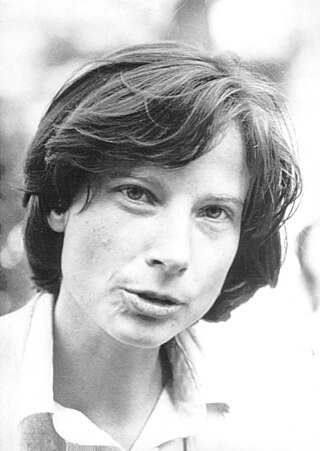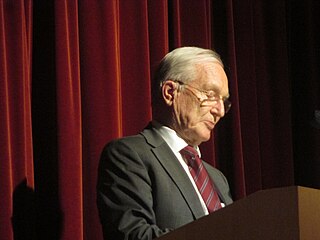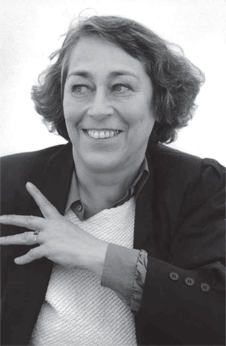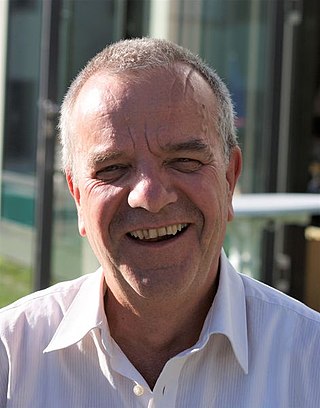Related Research Articles

Goethe University Frankfurt is a public research university located in Frankfurt am Main, Germany. It was founded in 1914 as a citizens' university, which means it was founded and funded by the wealthy and active liberal citizenry of Frankfurt. The original name in German was Universität Frankfurt am Main. In 1932, the university's name was extended in honour of one of the most famous native sons of Frankfurt, the poet, philosopher and writer/dramatist Johann Wolfgang von Goethe. The university currently has around 48,000 students, distributed across four major campuses within the city.

Herfried Münkler is a German political scientist. He is a Professor of Political Theory at Humboldt University in Berlin. Münkler is a regular commentator on global affairs in the German-language media and author of numerous books on the history of political ideas, on state-building and on the theory of war, such as "Machiavelli" (1982), "Gewalt und Ordnung" (1992), "The New Wars" and "Empires: The Logic of World Domination from Ancient Rome to the United States". In 2009 Münkler was awarded the Leipzig Book Fair Prize in the category "Non-fiction" for Die Deutschen und ihre Mythen.
Roger Cole Paulin is a scholar of German literature and culture. He was the Schröder Professor of German at the University of Cambridge from 1989 until his retirement in 2005.

Claudia Schmölders, also Claudia Henn-Schmölders is a German cultural scholar, author, and translator.

Johann Wolfgang von Goethe was a German polymath, who is widely regarded as the greatest and most influential writer in the German language. His work has had a profound and wide-ranging influence on Western literary, political, and philosophical thought from the late 18th century to the present day. A poet, playwright, novelist, scientist, statesman, theatre director, and critic, his works include plays, poetry and aesthetic criticism, as well as treatises on botany, anatomy, and color.

Manfred Osten is a German poet, author, lawyer, former diplomat and cultural historian.
Stefan Lehmann is a German classical archaeologist.

Lothar Gall was a German historian known as "one of German liberalism's primary historians". He was a professor of history at Goethe University Frankfurt from 1975 until his retirement in 2005. His biography of Otto von Bismarck has been translated into English, French, Italian, and Japanese.

Bad Harzburg railway station serves the spa town of Bad Harzburg in Lower Saxony, Germany. It is the southern terminus of the Brunswick–Bad Harzburg railway, one of the oldest lines in Germany, and the eastern terminus of a branch line to nearby Oker station. Regional rail services are operated by Deutsche Bahn AG and Erixx GmbH.

Jörg Baberowski is a German historian and Professor of Eastern European History at the Humboldt University of Berlin. He studies the history of the Soviet Union and Stalinist violence. Baberowski earlier served as Director of the Historical Institute and Dean of the Faculty of Philosophy I at the Humboldt University in Berlin.

Caroline von Humboldt, née Carolina Friederica von Dacheröden, was a German salonnière and art historian.

Christel Hoffmann is a German theater scholar, dramaturge and pedagogue.

Michael Borgolte is a German Historian. Besides the history of medieval endowments he studies mainly the Comparative history of Europe and the Global history of the Middle Ages.
Arne Stollberg is a German musicologist and university professor.

Sandra Ciesek is a German physician and virologist. She is the director of the Institute of Medical Virology at the Universitätsklinikum Frankfurt and professor of medical virology at the Goethe University Frankfurt. Her main areas of research include new forms of therapy for hepatitis C and, more recently, the search for drugs against COVID-19.

Ewald Grothe is a German historian. Since 2009 he has been an extraordinary professor at the Bergische Universität Wuppertal and since 2011 he has been head of the Archive of Liberalism of the Friedrich Naumann Foundation for Freedom in Gummersbach.
Hans-Günter Ottenberg is a German musicologist and teacher.

Fawzi Boubia, born in 1948 in Khemisset, is a Moroccan intellectual.
Thomas Khurana is a German philosopher. Since 2020, he has held the position of Chair of Philosophical Anthropology and Philosophy of Mind in the Department of Philosophy at the University of Potsdam. He is also currently the director of the Center for Post-Kantian Philosophy.
Liliane Weissberg is an American literary scholar and cultural historian specializing in German-Jewish studies and German and American literature. She is currently the Christopher H. Browne Distinguished Professor in Arts and Sciences and Professor of German and Comparative Literature at the University of Pennsylvania. She received, among others, a Guggenheim Fellowship, the Humboldt Research Award for her research on German-Jewish literature and culture and the Berlin Prize of the American Academy in Berlin, and holds an honorary degree from the University of Graz.
References
- ↑ "ORCID" . Retrieved 2025-01-03.
- ↑ "Geschichtspreis für Tillmann Lohse - Nachrichten aus Goslar und dem Harz - Goslarsche Zeitung - Goslarsche.de". www.goslarsche.de. Retrieved 2017-12-18.
- ↑ "Geschichtspreis". www.geschichtsvereingoslar.de. Retrieved 2017-12-18.
- ↑ "Chronik des Stiftes SS. Simon und Judas in Goslar".
- ↑ "Die Dauer der Stiftung — recensio.net". www.recensio.net. Retrieved 2017-12-18.
- ↑ Kruppa, Nathalie (31 March 2013). "perspectivia.net". Mittelalter - Moyen Âge (500-1500). Retrieved 2017-12-18.
- ↑ "Zeitschrift für Geschichtswissenschaften - Die DDR gestützt - und doch überlebt". Deutschlandfunk Kultur (in German). Retrieved 2017-12-18.
- ↑ Scherfig, Leon. "Das Schwert des Sachbearbeiters" (in German). Retrieved 2017-12-18.
- ↑ Cf. Gregor Patt: Crowdsourcing bei Urkunden und Briefen (2015) 19-22 (in German) - https://www.landesarchiv-bw.de/sixcms/media.php/120/58908/Transferarbeit2015_Patt.pdf
- ↑ "Goethe-Universität — Dr. Tillmann Lohse". www.geschichte.uni-frankfurt.de. Retrieved 2017-12-18.
- ↑ "Landkreis Stendal" . Retrieved 2022-01-20.